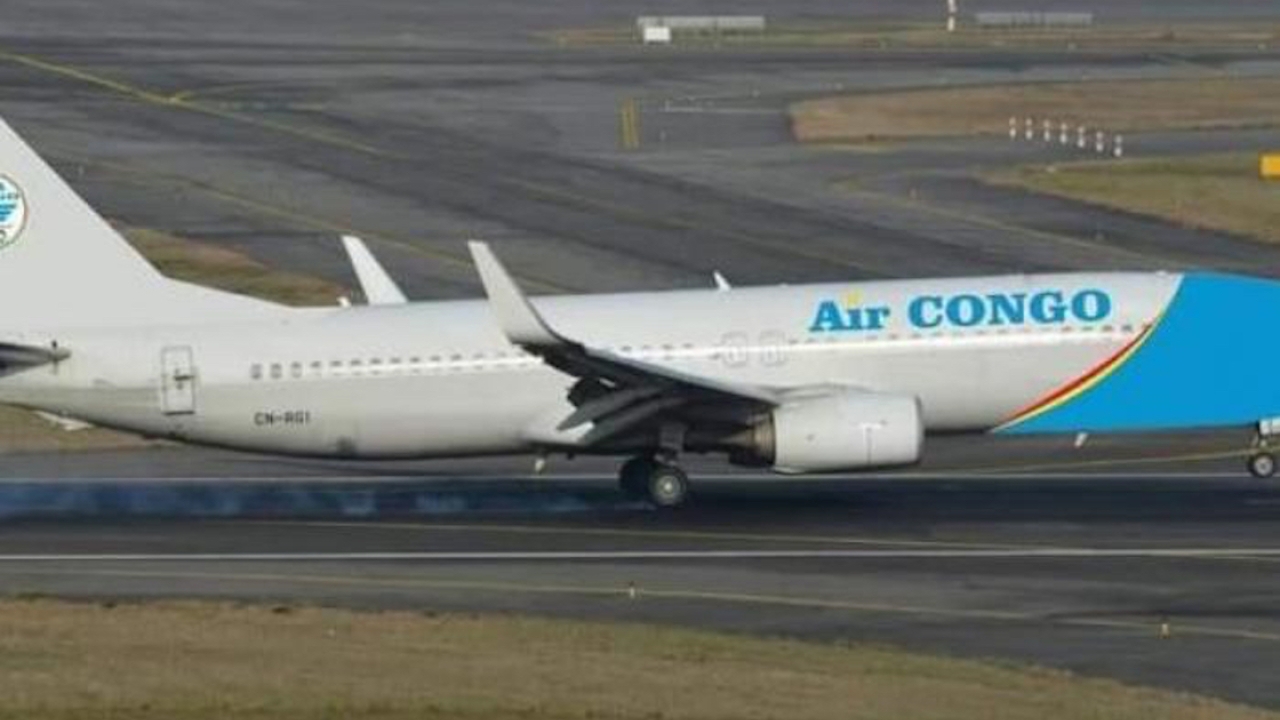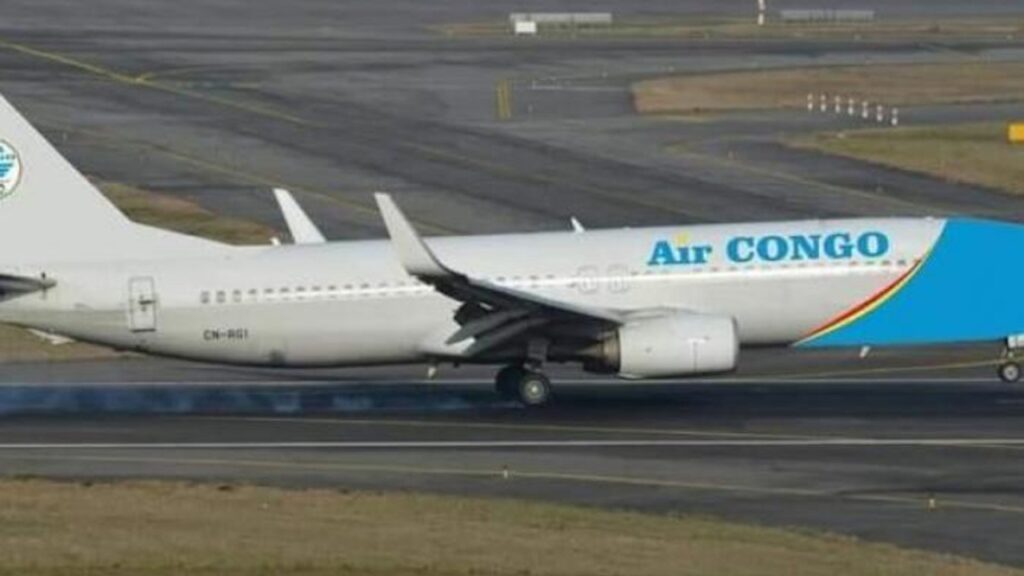
Air Congo Receives Its Second Aircraft in Kinshasa
Kinshasa, December 16, 2024
Air Congo, the Democratic Republic of Congo’s national airline, has marked another milestone with the reception of its second aircraft, a Boeing 737-800, on December 15 at N’djili International Airport in Kinshasa. The plane arrived from Addis Ababa, Ethiopia, as part of the company’s rapid expansion plan.
Speaking at the event, Air Congo’s Director General, Weldegeorgis Mesfin Biru, expressed optimism:
“This evening, we are thrilled to receive the second aircraft for Air Congo. Soon, it will operate under the registration of the Democratic Republic of Congo, the 9S. The reception of new planes will continue until we reach a fleet of eight aircraft. In a year, we expect to have six operational planes.”
The airline had previously welcomed its first Boeing 737-800 on November 30, 2024, marking the official beginning of operations for the newly launched Air Congo.
A Strategic Partnership with Ethiopian Airlines
Air Congo is a result of a partnership between the Congolese government and Ethiopian Airlines, one of Africa’s most reputable carriers. This collaboration splits ownership as follows:
- 51% shares held by the DRC government
- 49% shares held by Ethiopian Airlines
The total investment amounts to $40 million USD, emphasizing the government’s commitment to strengthening domestic and international air connectivity.
Jean-Pierre Bemba, Vice Prime Minister and Minister of Transport, highlighted the significance of this partnership during the 14th Council of Ministers session held on September 20, 2024. He emphasized the aim of leveraging Ethiopian Airlines’ expertise to build a modern and competitive airline for the DRC.
Fleet Expansion Plans
Air Congo plans to expand its fleet rapidly, with four additional aircraft expected within the next six months, bringing the total to six by mid-2025. This growth aligns with the government’s ambitions to create a reliable and efficient air transport system catering to both domestic and international routes.
Analysis: What Does This Mean for the DRC?
The establishment of Air Congo represents a significant step forward for the Democratic Republic of Congo, a nation historically underserved in air transportation. Here are the key implications:
- Economic Impact:
Air Congo’s operations will contribute to job creation, tourism growth, and economic development. A robust national carrier can also boost trade and investment by improving connectivity. - Regional and International Connectivity:
With Ethiopian Airlines’ technical and managerial expertise, Air Congo is well-positioned to become a regional player. This partnership provides access to Ethiopian’s extensive network, linking the DRC to global markets. - Challenges Ahead:
While the expansion is promising, operational sustainability remains critical. The airline must overcome challenges such as infrastructure limitations, high operating costs, and ensuring safety and reliability in line with international standards. - National Pride and Sovereignty:
A strong national airline enhances the DRC’s image on the global stage. However, achieving this requires maintaining majority ownership and ensuring the company operates in the best interests of the Congolese people.
Conclusion
The launch and rapid expansion of Air Congo signal a bold move by the DRC to reclaim its place in the aviation sector. With continued investment, strategic management, and strong partnerships, the airline has the potential to transform the country’s air travel landscape while contributing to broader economic growth.
As Air Congo’s fleet grows and operations take off, the eyes of the nation—and the continent—will be on how well it fulfills its promise of reliable, modern air transport.

